#VisitNewZealand
Explore tagged Tumblr posts
Text
Escape to Middle-earth: A Stay at Lodge Lorien or Elysium Lodge in New Zealand

Imagine waking up to views so spectacular they look straight out of a movie. That’s because they are. Nestled near Glenorchy, Lodge Lorien and Elysium Lodge in New Zealand’s South Island are surrounded by landscapes that brought Middle-earth to life in The Lord of the Rings and The Hobbit. And while the scenery might feel otherworldly, your stay will be grounded in pure luxury.
Both lodges offer a private retreat with panoramic views of Lake Wakatipu and the Southern Alps, making every sunrise and sunset feel like a scene from a masterpiece. Lodge Lorien exudes charm with its alpine architecture and cozy-yet-elegant interiors, while Elysium Lodge offers contemporary luxury with a design that blends seamlessly into the natural surroundings. Whichever you choose, you’ll feel like the only person in the world—though with amenities like private cinemas, saunas, and hot tubs, you’ll never want to leave.

When you’re ready to explore, the adventures are as extraordinary as the lodges themselves. Hop into a helicopter for a bird’s-eye view of the Southern Alps, touch down on a glacier, or enjoy a gourmet picnic by an alpine lake. For a more leisurely day, take a stroll along a private beach or enjoy a horseback ride through valleys that will look very familiar to Tolkien fans. If you're a film enthusiast, this is your chance to walk through Middle-earth—literally. The area around the lodges served as the backdrop for iconic scenes, making your stay feel like stepping into a storybook.
Of course, not every day has to be about adventure. Some days, you’ll want to simply soak it all in. Maybe it’s sipping local wine on the terrace, soaking in the hot tub under a starlit sky, or unwinding with a massage in the privacy of your lodge. It’s a place where luxury and tranquility go hand in hand.

Lodge Lorien and Elysium Lodge aren’t just places to stay—they’re gateways to one of the most beautiful regions on Earth. Whether you’re here for the adventure, the scenery, or a little bit of both, your time in New Zealand will be nothing short of extraordinary. So why not trade the ordinary for the unforgettable? Middle-earth is calling, and it’s even better in real life.

#luxury#luxurytravel#thejajoftravel#travel#beautifuldestinations#travelandleisure#travelgram#beautifulhotels#traveling#newzealand#visitnewzealand#lordoftherings
0 notes
Text
New Zealand Visa Fee Increases Coming into Effect from 1 October 2024.

The landscape of immigration is changing constantly across the world. The Government through its notification of 9 August 2024 increased fees for visas from 1 October 2024. These enhanced visa charges and levies would help devise a sustainable and efficient self-funding system of immigration. Aptech Visa, being an appropriately licensed immigration consultancy, is geared up to drive applicants through visa process intricacies with ease and professionalism.
This initiative, which is part of the Government's effort to improve immigration services, also includes changes in the International Visitor Conservation and Tourism Levy (IVL), which increases to NZD$ 341 plus NZD$ 100 (levy fee) totalling NZD$ 441. Tourists, students, and applicants for work exchange, this means that some professional assistance is going to be necessary in dealing with the new requirements.
What's Changing?
From 1 October, visa fees will be charged based on the real cost of processing them and set at a level that secures the long-term sustainability of the immigration system. Changes are to visitor visas in categories, but not limited to, those below:
Visitor visas; all categories except partner and dependent categories
Student visas
Work visas, including specific purpose and trainee work visas
Applications for New Zealand Electronic Travel Authority (NZeTA)
This increase will ensure that the benefits and services delivered by immigration to the economy, whether by bringing families together, keeping firms competitive through vital skills, or promoting cross-border tourism, are adequately funded.
How Aptech Visa Can Help
With over 15 years of experience and thorough knowledge of how immigration policy norms are constantly evolving, Aptech Visa is possibly in a better position than anyone to help those affected by changes. As a government-approved immigration consultancy, it closely works in association with MARA agents and other trusted authorities across international borders and makes sure that each visa application is processed professionally and in a very personalized manner. Here's how Aptech Visa can help you move forward:
1. Thorough Visa Consultation
It is not particularly easy to comprehend which visa fees and levies might apply to you. Aptech Visa, however, ensures that the applicant is well aware of all information related to the newest fee structure applicable for the latest visa issuance. Be it an entry for a visitor visa, student visa, or working holiday visa, Aptech Visa is there to expertly steer through the application process.
2. Application Support for New Zealand Visas
Another important factor to add to the checklist is an increase in visa charges, particularly when visiting International Visitor Conservation and Tourism Levy (IVL) charged countries. You must check that this change has been added to your visa application, as it will process your IVL and help to avoid confusion about the new requirements.
3. Real-Time Information about Fee Changes
It is challenging to track and follow changes in visa fees. Aptech Visa provides you with live updates regarding the fee structure and processing times, among other changes that may have been brought about to affect your application so that you can be in the know about the latest updates given.
Our team keeps following all the updates from IRCC, and MARA, among others so that you get the right information.
4. Visa Assistance for Pacific Visa Applicants
Aptech Visa undertakes the same commitment, and we service applicants from the Pacific countries again eligible for subsidized visa fees as a part of New Zealand's commitment to the region. With a record that can boast the successful application of visas, we have solutions for those wishing to migrate to, or visit, New Zealand visitor visa.
5. Professional Support for ESOL Programs
With new amendments, 80% of the school English for Speakers of Other Languages (ESOL) program fees shall be paid for by the applicant on their visa, with the balance of 20% by the New Zealand Government. Aptech Visa can help families and applicants understand all costs associated with bringing their children over and onboarding them onto New Zealand school programs.
Why Aptech Visa?
Aptech Visa comprises dedicated team members who work towards offering transparent, ethical, and professional immigration services. It is registered as an Indian Government-approved consultancy with the help of which applicants can experience relief in understanding the otherwise complicated immigration process. Be it a visitor, work, or student visa, Aptech Visa stands by to guide you through these new needs.
Aptech Visa Features:
More than 15 years experience in immigration consultation.
Good relations with MARA agents and connections with IRCC and other relevant authorities
Government-approved consultancy serious services to clients
Offering customized counselling to clients on the visa fee increase and the IVL requirement.
With visa charges due to rise from 1 October 2024, it's an ideal time to sit with your trusted, government-approved immigration consultant like Aptech Visa. We are here to guide you through the changes and ensure everything goes right with your visa application. Our ultimate goal is to make it easy for you, from start to finish, where you can then focus on your future in New Zealand Immigration.
For further details or to book an appointment today please visit https://www.aptechvisa.com/new-zealand-pr or contact our office today at 7503832132 you can also write to us at [email protected]
#NewZealandVisa#NZVisa#VisaApplication#ImmigrateToNZ#NewZealandImmigration#VisaProcess#NZResidentVisa#LivingInNZ#TravelToNZ#ExploreNewZealand#NZLife#VisaApproval#VisitNewZealand#MovingToNZ#NewZealandDreams#visa#immigration#consultant#india
0 notes
Text

The eTA New Zealand Visa (NZeTA) (New Zealand Electronic Travel Authorisation) is an electronic travel authorisation which was launched by the Immigration Agency, Government of New Zealand after July 2019.It is obligatory for citizens of all 60 visa waiver countries to obtain eTA New Zealand Visa (NZeTA), and all cruise travelers, by October 2019. All airline and cruise line crew will also need to hold a Crew eTA New Zealand Visa (NZeTA) before travelling to New Zealand (NZ).
0 notes
Text
Apply for Your NZeTA Visa Now and Get Ready to Explore!

Discover the Beauty of New Zealand
New Zealand, with its stunning landscapes, vibrant cities, and rich cultural heritage, is a dream destination for travelers worldwide. Whether you’re planning to hike the breathtaking trails of Fiordland National Park, immerse yourself in Maori culture, or explore the bustling streets of Auckland, New Zealand offers an adventure for everyone.
What is an NZeTA?
The New Zealand Electronic Travel Authority (NZeTA) is a mandatory entry requirement for travelers from visa waiver countries. It allows you to visit New Zealand for up to 3 months at a time and is valid for up to 2 years.
Why Apply for an NZeTA?
Convenience: The NZeTA application process is quick and straightforward, making it easy to plan your trip.
Efficiency: Applications are typically processed within 72 hours.
Cost-Effective: The fee is affordable, and there are no hidden charges.
How to Apply
Visit the Our Website: Go to the Our New Zealand eTA website to start your application.
Fill in Your Details: Provide personal information, passport details, and travel plans.
Pay the Fee: Use a credit or debit card to pay the NZeTA fee and the International Visitor Conservation and Tourism Levy (IVL).
Submit Your Application: Review your information and submit the application.
Things to Remember
Check Your Eligibility: Ensure that you are from a visa waiver country and meet all other requirements.
Passport Validity: Your passport must be valid for at least three months beyond your intended departure date from New Zealand.
Health and Character: You must be in good health and of good character to enter New Zealand.
Start Your Adventure
With your NZeTA visa, you’re ready to explore the stunning beauty and unique culture of New Zealand. From the snow-capped peaks of the Southern Alps to the geothermal wonders of Rotorua, your adventure awaits.
Apply for Your NZeTA Now and Begin Your New Zealand Journey!
Don’t miss out on the opportunity to experience all that New Zealand has to offer. Apply for your NZeTA today and get ready to create unforgettable memories in one of the world’s most beautiful destinations.
https://www.nzetaonlinevisa.com/
#NZeTA#VisaApplication#NewZealandTravel#TravelTips#ExploreNZ#TravelAdventure#Tourism#HolidayPlanning#TripPlanning#VisitorVisa#TravelRequirements#EasyApplication#TravelAuthorization#VisitNewZealand#TravelPreparation
0 notes
Text
Queenstown, New Zealand
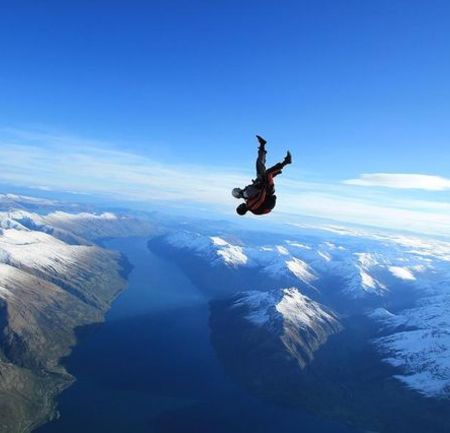
Discover the breathtaking beauty of Queenstown, New Zealand - a true paradise for adventurers and nature enthusiasts alike.
0 notes
Text
New Zealand
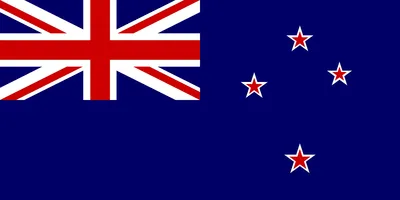
New Zealand is a stunning country situated in the southwestern Pacific Ocean that comprises of two main islands, North and South. The North Island is known for its geothermal attractions, including hot springs, geysers, and mud pools, while the South Island is characterized by its mountain ranges, fjords, and glaciers. In total, New Zealand has 600 smaller islands that form part of the country. This country's geography is diverse, featuring plenty of immaculate beaches, forests, mountains, waterfalls, and lakes. Known for its natural beauty and spectacular scenery, New Zealand provides a myriad of opportunities for adventure lovers, nature enthusiasts, and wildlife watchers. Whether you opt to go hiking, skiing, surfing, or simply strolling along the beach, New Zealand caters to the diverse needs and interests of travelers from around the world. The culture of New Zealand is a unique blend of Maori and Western traditions. The indigenous Maori people are an essential part of New Zealand's identity and have played a significant role in shaping the country's culture and history. European settlers arrived in the late 18th century and brought with them a wide range of customs, cuisines, and practices that have made New Zealand the cosmopolitan country it is today. If you want to experience the natural beauty and unique culture of New Zealand, it's essential to plan your visit well in advance. International flights are available from many major cities globally, and once you're in the country, you'll have plenty of accommodation options, ranging from budget-friendly hostels to luxury resorts. Whether you're traveling solo or with friends, New Zealand is a destination that promises to surprise and captivate you with its stunning landscapes, friendly people, and rich cultural heritage.

Etymology
'New Zealand' originates from the Dutch explorer Abel Tasman who named it 'Nieuw Zeeland', meaning 'new sea land' in Dutch. Tasman was the first European explorer to sight New Zealand in 1642. However, it was not until the arrival of British explorer James Cook in 1769 that the country was extensively explored and claimed for Britain. The name 'New Zealand' became official when the Treaty of Waitangi was signed between the British Crown and Maori chiefs in 1840, establishing British sovereignty over New Zealand. The treaty was signed in both Maori and English, with the Maori version referring to the country as 'Aotearoa', meaning 'land of the long white cloud'. Today, 'New Zealand' is internationally recognized as the official name of the country. The country is also known as 'Aotearoa' in Maori, and this name is widely used by both Maori and non-Maori New Zealanders.
History
New Zealand has a rich history, with the first settlers being the indigenous Maori people around 800 CE. Their arrival from Polynesia marked the beginning of a distinct cultural heritage that still features prominently in New Zealand's society today. They developed their own language, customs, and beliefs, which were strongly connected with the natural environment. The next significant event in New Zealand's history was the arrival of Europeans in the late 18th century. They were explorers and traders, who introduced new materials, technology, and crops to the Maori people. Although the initial interactions were peaceful, tensions rose over time as more and more Europeans arrived in search of land and resources. The Treaty of Waitangi, signed in 1840, formalized the relationship between the British Crown and the Maori people. It recognized Maori ownership of their land and guaranteed them the same rights as British subjects. However, the interpretation and implementation of the treaty were far from straightforward, and conflicts between the two cultures continued for many years. Over time, New Zealand became a British colony, and this led to further changes in the social, political, and economic landscape. New immigrants from Europe and other parts of the world arrived, establishing their own communities and traditions. The country became a dominion in 1907 and gained full independence in 1947. New Zealand's history is long and varied, and the legacy of its different cultures can be seen in everything from its architecture and cuisine to its music and art. It is a fascinating destination for anyone interested in the history of the Pacific islands, and there are many museums, galleries, and historic sites that offer a fascinating insight into the country's past.
Geology
New Zealand is an incredibly unique country with an equally unique geological landscape. The country is situated on the boundary of two tectonic plates, which has resulted in a great deal of volcanic and geothermal activity. The volcanic activity has created many impressive mountains, including Mount Cook, New Zealand's tallest peak. There are over 50 volcanoes in New Zealand, many of which are still active. The most famous is Mount Ruapehu, which is also home to the largest ski resort in the country. New Zealand's volcanic activity also causes hot springs to form in certain areas, such as Rotorua, where the geothermal activity is so pronounced that steam visibly rises from the ground. New Zealand's glaciers are also a unique feature of its geography. In addition to Mount Cook, which is surrounded by glaciers, there are also the Franz Josef and Fox glaciers, which are popular tourist attractions. Visitors can take guided tours or hike to these icy wonders. The Coromandel Peninsula on the North Island is known for its unique geological formations, including the famous Hot Water Beach, where visitors can dig their own hot spring in the sand. The Waitomo Caves on the North Island are also a popular attraction, with their unique limestone formations and glowworm displays. New Zealand's geology is a fascinating and integral part of its identity, with so much to explore and discover.
Geography
New Zealand is a land with a rich and diverse geography, ranging from sandy beaches to dense forests, towering mountains to tranquil fjords. The country has a total land area of approximately 268,000 square kilometres, and is located in the southwestern Pacific Ocean. The North Island of New Zealand is known for its active volcanoes, such as Mount Ruapehu and White Island. The Central Plateau is dominated by the volcanic peaks of Tongariro National Park, which was the country's first national park and is now a UNESCO World Heritage Site. The North Island is also known for its beaches, including the famous Mount Maunganui Beach and Ninety Mile Beach. The South Island of New Zealand is characterized by the Southern Alps, which run the length of the island and include New Zealand's highest peak, Aoraki/Mount Cook. The Southern Alps are home to numerous glaciers, including the Franz Josef and Fox glaciers, and offer world-class skiing and hiking opportunities. The South Island is also known for its fjords, particularly Milford Sound, which is one of the country's most popular tourist destinations. New Zealand's geography is also shaped by its location on the Pacific Ring of Fire, a region of high volcanic and seismic activity. As a result, the country experiences frequent earthquakes, and is home to a number of hot springs and geothermal pools, including the famous Rotorua geothermal area on the North Island. In addition to its natural wonders, New Zealand also has a number of man-made landmarks, such as the Sky Tower in Auckland, the Beehive in Wellington, and the Christchurch Arts Centre. With so much to explore, it's no wonder that New Zealand is a popular destination for adventurers, nature lovers, and culture enthusiasts alike.
Ecology
New Zealand is known for its unique ecology, which is characterized by a mix of endemic and introduced species of flora and fauna. The country's isolation and variable climate have led to the evolution of a diverse range of species, many of which are not found anywhere else in the world.One of the most iconic endemic species in New Zealand is the kiwi bird, which is a flightless bird and is considered a national symbol. Other endemic species include the kakapo, the takahe, and the tuatara, a reptile that dates back to the time of the dinosaurs.New Zealand's marine ecology is also unique, with a range of endemic species of fish, crustaceans, and other marine life. The Hectors dolphin, for example, is only found in the waters around New Zealand.However, New Zealand's ecology is facing a number of threats, including habitat loss, introduced pests, and climate change. The country has taken steps to protect its native flora and fauna, including establishing national parks and wildlife reserves.In recent years, there has been a growing movement towards conservation and sustainable practices in New Zealand, with many organizations and individuals working to protect the country's unique ecology. One such initiative is the Predator Free New Zealand project, which aims to eliminate introduced predators such as rats and stoats that threaten the country's native species.
Biodiversity
New Zealand has a unique and diverse range of ecosystems, including forests, grasslands, wetlands, and alpine regions. The country's isolation from other landmasses has enabled the evolution of many endemic species of flora and fauna that cannot be found anywhere else in the world. The native forest of New Zealand, known as the 'bush', is home to many species of trees, including the iconic kauri and totara. The country's aquatic ecosystems are also incredibly diverse, with many different species of fish, shellfish, and crustaceans. The protection of New Zealand's native flora and fauna is a top priority for conservation efforts in the country. The Department of Conservation (DOC) is responsible for managing the country's natural resources and is dedicated to protecting and preserving New Zealand's unique biodiversity. One of the most important ways in which New Zealand protects its biodiversity is through the establishment of national parks and reserves, which aim to protect and restore natural ecosystems. Some of the most significant of these protected areas include the Tongariro National Park, Fiordland National Park, and the Abel Tasman National Park. New Zealand's marine biodiversity is also a crucial aspect of the country's ecology. The country's marine environment is home to a diverse range of ecosystems, from rocky reefs to sandy beaches. The protection of these ecosystems is vital not only for the preservation of native species but also for the country's fishing and tourism industries. the protection of biodiversity is an essential aspect of New Zealand's environmental management, and the country has made efforts to ensure the preservation of its unique ecosystems for future generations.
Climate
New Zealand's climate is largely influenced by its location in the southwestern Pacific Ocean and the prevailing westerly winds. The country experiences a temperate maritime climate with warm summers and mild winters. The North Island tends to be warmer and more humid than the South Island, which can experience cooler temperatures and more frequent snowfall. The average temperature in New Zealand ranges from 10°C (50°F) in winter to 20°C (68°F) in summer. The warmest months are December to February, while the coolest months are June to August. Rainfall is spread evenly throughout the year, although some parts of the country can experience rainfall for up to 200 days a year. The country's diverse geography, which includes mountains, plains, and coastal regions, means that there is a variation in climate between regions. The west coast of the South Island, for instance, receives a higher amount of rainfall than the east coast. New Zealand is also prone to extreme weather events, such as hurricanes and tornadoes, particularly during the summer months. However, these events are relatively rare and generally only affect small parts of the country. New Zealand's mild climate makes it a popular destination for tourists from around the world who are looking to explore the country's natural beauty and enjoy outdoor activities such as hiking and swimming.
Environmental issues
New Zealand has a unique and fragile environment, and as such, it faces a range of environmental issues. Deforestation is one such issue. Despite efforts to protect native forests, many areas have been cleared for farming, logging, and development. As a result, many native species have lost their habitats, and erosion and soil degradation are becoming more common. Pollution is another major environmental issue in New Zealand. Industrial, agricultural, and urban sources all contribute to air pollution, water pollution, and soil contamination. For example, high levels of nitrates in waterways are a concern for both public health and the health of freshwater ecosystems. Perhaps the most pressing environmental issue facing New Zealand is the impact of climate change. Rising temperatures, changing rainfall patterns, and more frequent extreme weather events are all expected to have significant impacts on the country's ecosystems, agriculture, and infrastructure. New Zealand has committed to reducing its greenhouse gas emissions, but much work remains to be done to mitigate the impacts of climate change. Efforts to address these environmental issues are underway in New Zealand. The government has set targets for reducing emissions and protecting biodiversity, and there are a range of voluntary initiatives and programs aimed at encouraging sustainability. However, much work remains to be done to ensure that New Zealand's unique environment is protected for future generations.
Politics
New Zealand is widely known for its progressive and stable political system. It is a parliamentary democracy with a constitutional monarchy. The Head of State is the British monarch, currently Queen Elizabeth II, represented in New Zealand by the Governor-General. However, the monarch's role in New Zealand is largely ceremonial, and the country is effectively governed by the elected Prime Minister and Parliament. The Parliament of New Zealand is unicameral, meaning it has only one chamber, the House of Representatives. Members of Parliament are elected every three years by a form of proportional representation. This often results in coalition governments, where multiple political parties work together to form a majority. New Zealand's current Prime Minister is Jacinda Ardern, who heads the Labour Party. Her coalition government includes the Greens and New Zealand First parties. New Zealand has a strong tradition of social welfare, with a comprehensive healthcare system, free education, and a range of other social services. The country also has a focus on environmental protection and sustainability, with a target of becoming carbon neutral by 2050. The government has implemented a number of measures to reduce emissions and promote renewable energy. As a member of the Commonwealth, New Zealand maintains close ties with other countries that share the same political system, including Australia, Canada, and the United Kingdom. The country is also a member of the United Nations and a range of other international organizations.
Economy
New Zealand has a diverse and dynamic economy, with a strong emphasis on agriculture and tourism. These two sectors make up a significant portion of the country's GDP and provide employment opportunities for many New Zealanders. Agriculture has traditionally been the backbone of the New Zealand economy, with the country exporting a wide range of agricultural products such as dairy, meat, and wool. The dairy industry, in particular, is a major contributor to the economy, with New Zealand being the world's largest exporter of dairy products. The wine industry has also grown in recent years, with New Zealand wines earning a strong reputation worldwide. Tourism has also emerged as a major contributor to the economy, with the country's stunning natural beauty and outdoor activities attracting millions of visitors each year. The industry is supported by a wide range of tourism infrastructure, such as hotels, restaurants, and transportation. New Zealand also has a thriving manufacturing sector, with significant production in food processing, wood and paper products, and machinery. The country has a well-developed financial sector, with strong banking and insurance industries. Trade is an important part of the New Zealand economy, with the country exporting goods to a wide range of destinations around the world. The country has several free trade agreements in place, including with China, Australia, and the European Union. New Zealand's economy has shown resilience and adaptability, with a diverse range of sectors contributing to the country's prosperity. The government has a strong focus on supporting businesses and promoting innovation, ensuring that the country remains competitive on the global stage.

Infrastructure
New Zealand has a robust infrastructure system that makes it easy for both locals and tourists to navigate the country with ease. The country has a well-connected transportation system that includes options such as buses, trains, ferries, and flights that operate regularly to different parts of the country. The transportation system is efficient, safe, and cost-effective, making it one of the best in the world. The country's roads are well-maintained, and travelers can rent cars, campervans or motorbikes to explore the country's scenic routes. New Zealand's world-class airports make it easy for tourists to arrive and depart from different cities and towns. Its seaports are modern, full-fledged, and efficient, making it convenient for goods to be transported within the country or to different parts of the world. New Zealand's communication systems are equally well developed, with the country having a relatively high internet penetration rate. Most places in the country offer free Wi-Fi, including most of the airports, cafes, libraries, malls and even some public parks. This makes it easy for visitors to stay connected with their loved ones or even work while they are on holiday. The country also has a well-established postal system that offers courier and mailing services to businesses and individuals, both domestically and internationally. The postal service is reliable, with an efficient delivery system, and it can be accessed through several post offices located in different parts of the country. the country's first-rate infrastructure ensures that visitors can move around with ease, and it is a vital factor in making New Zealand one of the top tourist destinations in the world.
Science and technology
New Zealand's strong focus on science and technology has led to the development of several world-class research institutions in the country. Read the full article
0 notes
Text
10 Things that Americans Need to Know When Traveling in New Zealand
10 things that Americans need to know when traveling to New Zealand. #travel #newzealand #nz #grandparents #thingstoknow #newzealandtravel #visitnewzealand #traveltips #travelessentials #newzealandtrip #newzealandroastrip #kiwitrip #kiwitravel
My parents just finished a 7-week trip to New Zealand. Here are their tips: Written by Doris Schick My husband and I just returned to California from a 7-week vacation/visit in New Zealand. Our son, his wife, and their 3 children moved to Auckland, New Zealand in July. By the time December arrived, we decided it was time to visit them and tour the country. We had always wanted to see New…
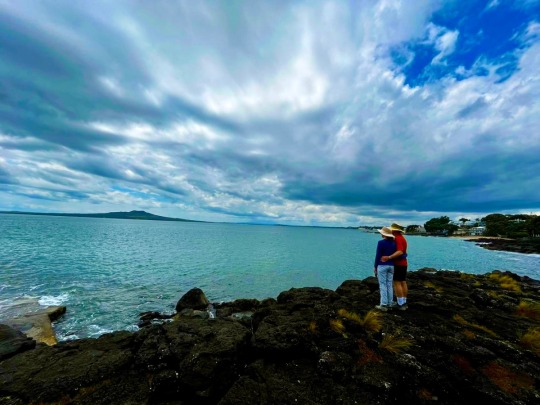
View On WordPress
0 notes
Text
By reading and following the Book “Way of Living”
you will be saved from sins. The unrest in the house will end.
- Spiritual Leader Sant Rampal Ji Maharaj
#KabirIsGod
#airnz #kiwi #christchurchnz #explorenz #Newzealandfinds #nzmustdo #nztourism #aucklandeats #discovernewzealand #nzsouthisland #visitNewzealand #nouvellezelande
#SaintRampalJi #SantRampalJiMaharaj
#KabirisGod
0 notes
Text
A family that will have the book "Way of Living" will read it. As a result of which, they will become de-addicted.
- Spiritual Leader Sant Rampal Ji Maharaj
#Queenstown #Queenstownnz #travelnewzealand #travelnz #nz #newzealand #southisland #auckland #wellington #lakewakatipu #glenorchy #tongariro
#SaintRampalJi #SantRampalJiMaharaj
#KabirisGod
#airnz #kiwi #christchurchnz #explorenz #Newzealandfinds #nzmustdo #nztourism #aucklandeats #discovernewzealand #nzsouthisland #visitNewzealand #nouvellezelande

0 notes
Text
Prediction of woman astrologer from America, "Jean Dixon" about Saint Rampal Ji Maharaj -
An Indian man from a rural family and would send off the wars from the world forever.
.
.
.
.
.
.
#airnz #kiwi #christchurchnz #explorenz #Newzealandfinds #nzmustdo #nztourism #aucklandeats #discovernewzealand #nzsouthisland #visitNewzealand #nouvellezelande
#SaintRampalJi #SantRampalJiMaharaj
#KabirisGod

0 notes
Photo

#airnz #kiwi #christchurchnz #explorenz #Newzealandfinds #nzmustdo #nztourism #aucklandeats #discovernewzealand #nzsouthisland #visitNewzealand #nouvellezelande #SaintRampalJi #SantRampalJiMaharaj #KabirisGod #KabirIsGodA devotee, who on reading the book "Way Of Living" will take initiation and worship according to the rules, will not have an untimely death. - Spiritual Leader Sant Rampal Ji Maharaj
0 notes
Text
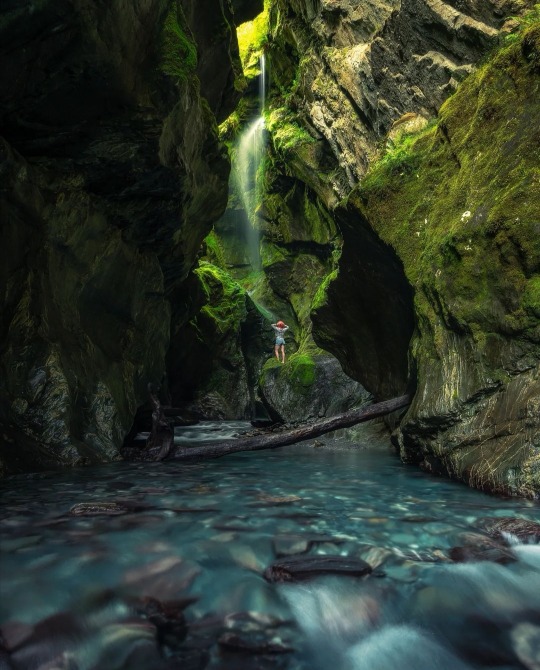
Chasm creek in Haast Pass / New Zealand (by Thomas Stevens).
#new zealand#visitnewzealand#Haast Pass#creek#canyons#hiking#outdoors#nature#oceania#wanderlust#bucketlist#travel#places#nouvelle zeelande
615 notes
·
View notes
Text

#ParentVisitorVisaNZ#NZVisitorVisa#NewZealandVisa#VisaForParents#FamilyInNZ#ImmigrationNZ#VisitNewZealand#NZTravel#RelocateToNewZealand#ParentsInNZ#ExploreNZ#VisaOptions#NewZealandImmigration#FamilyVisa#TravelWithFamily#visa#immigration#consultant#india
1 note
·
View note
Text

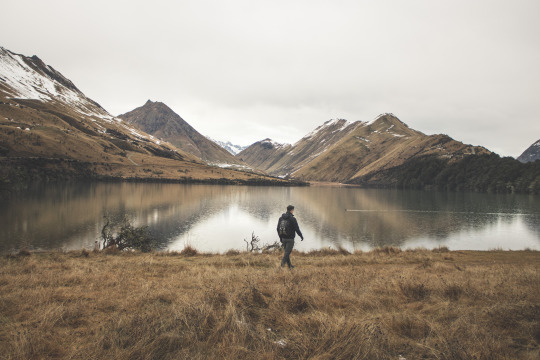
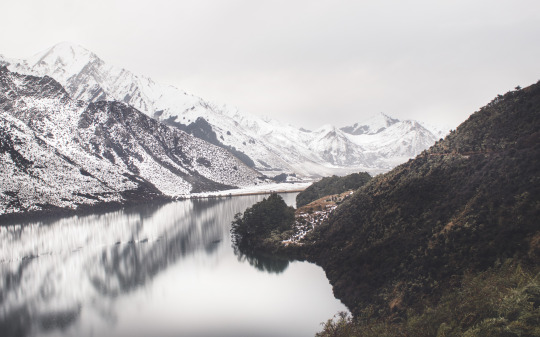


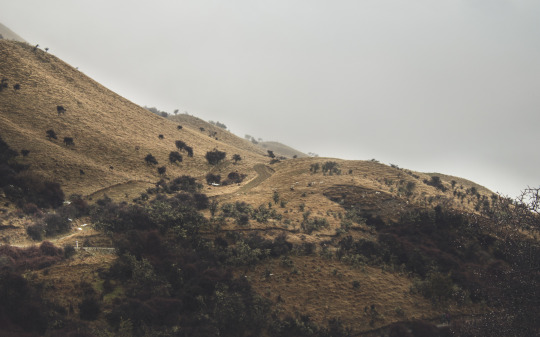
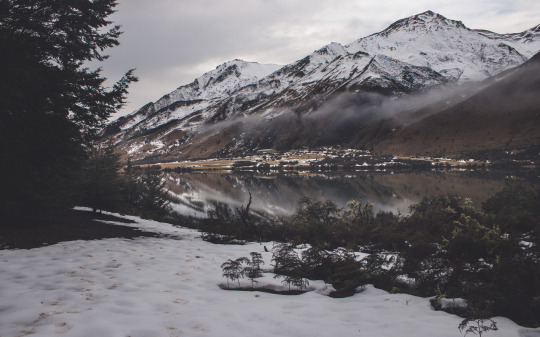
06/22 - Lake Moke, Queenstown
Some photos from last month from a little spot just outside of Queenstown, New Zealand. During winter it is accessible only via 4WD, so off we went for a little stroll with our Subaru Outback on the icy roads.
The trek was straightforward enough, but the deep snow and ice made the track treacherous. What realistically could take less than two hours was much longer mostly because we were treated to frozen waters and enduring sense of some special.
#2022#travel#queenstown#newzealand#nature#birds#BIRD UP#tourism#visitnewzealand#south island#photography#portrait#landscape#snow#ice#winter#photooftheday#style#instagood#beautiful
11 notes
·
View notes
Photo
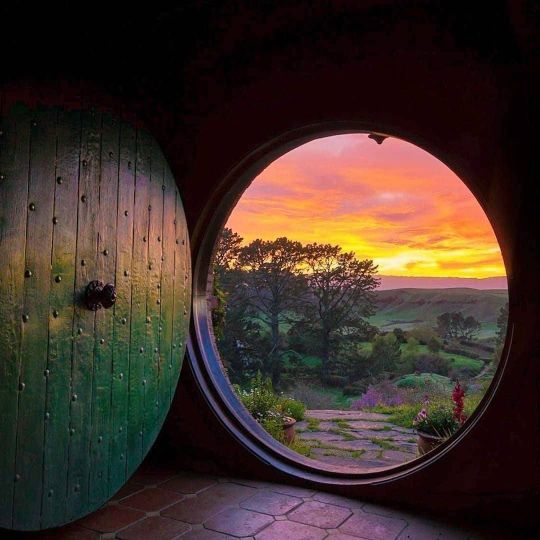
Do you like this view? 😍 Beautiful capture by @banerjeepuloma --> Thank you 🧡 🌍 Follow for daily stunning travel photography ��� SAVE 📤 SHARE ⏬ COMMENT #hobbithouse #newzealand #newzealandguide #newzealandtrip #visitnewzealand #hobbithole #hobbitonmovieset #hobbitownresorts #exploreourearth #enjoytravel #travelstuff #worldtravelig #globaltraveller #travelingaroundtheworld #travellingtheworld #travel_ig #adventurelife #beatifulplace #enjoymoments #findtravel #reisender #travelinglife #touristmode #travelaroundtheworld #travelfever #viajaresvivir #reiseliebe (hier: Glen Mills, Pennsylvania) https://www.instagram.com/p/CI-S-m9jr8b/?igshid=gim2h0llzer1
#hobbithouse#newzealand#newzealandguide#newzealandtrip#visitnewzealand#hobbithole#hobbitonmovieset#hobbitownresorts#exploreourearth#enjoytravel#travelstuff#worldtravelig#globaltraveller#travelingaroundtheworld#travellingtheworld#travel_ig#adventurelife#beatifulplace#enjoymoments#findtravel#reisender#travelinglife#touristmode#travelaroundtheworld#travelfever#viajaresvivir#reiseliebe
3 notes
·
View notes
Photo
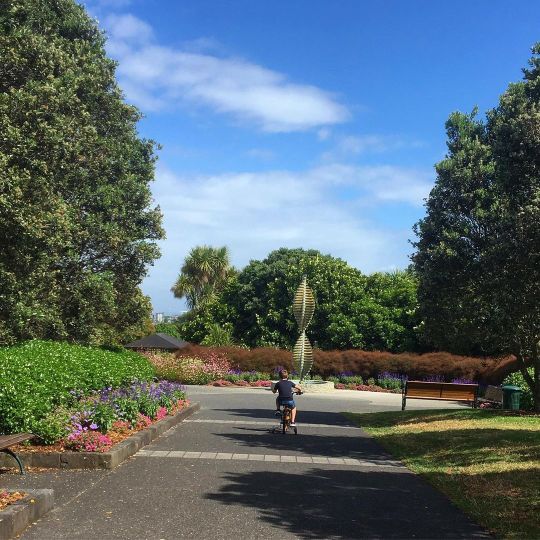
Welcome to the colourful Auckland Botanic Gardens! The perfect place for a stroll through the gardens of various perennials, succulents, cacti and New Zealand Natives and a kid-friendly area for your children to enjoy the outdoors while you catch up with your friends. This is the place for everyone! #nofilter #auckland #newzealand #aucklandnz #raw_nature #fun #visitnewzealand #flowers #color #flowerstagram #beautiful #pictureoftheday #photooftheday #photography #pretty #explore #tourismnz #instatravel #travel #travelphotography #travelgram #wanderlust #instagood #instadaily #visualambassadors #visualsoflife #nature #naturephotography #naturelovers #beautifuldestinations (at Auckland Botanic Gardens) https://www.instagram.com/p/CKoQ9qHrtzJ/?igshid=1fbz6p46qo0o2
#nofilter#auckland#newzealand#aucklandnz#raw_nature#fun#visitnewzealand#flowers#color#flowerstagram#beautiful#pictureoftheday#photooftheday#photography#pretty#explore#tourismnz#instatravel#travel#travelphotography#travelgram#wanderlust#instagood#instadaily#visualambassadors#visualsoflife#nature#naturephotography#naturelovers#beautifuldestinations
1 note
·
View note